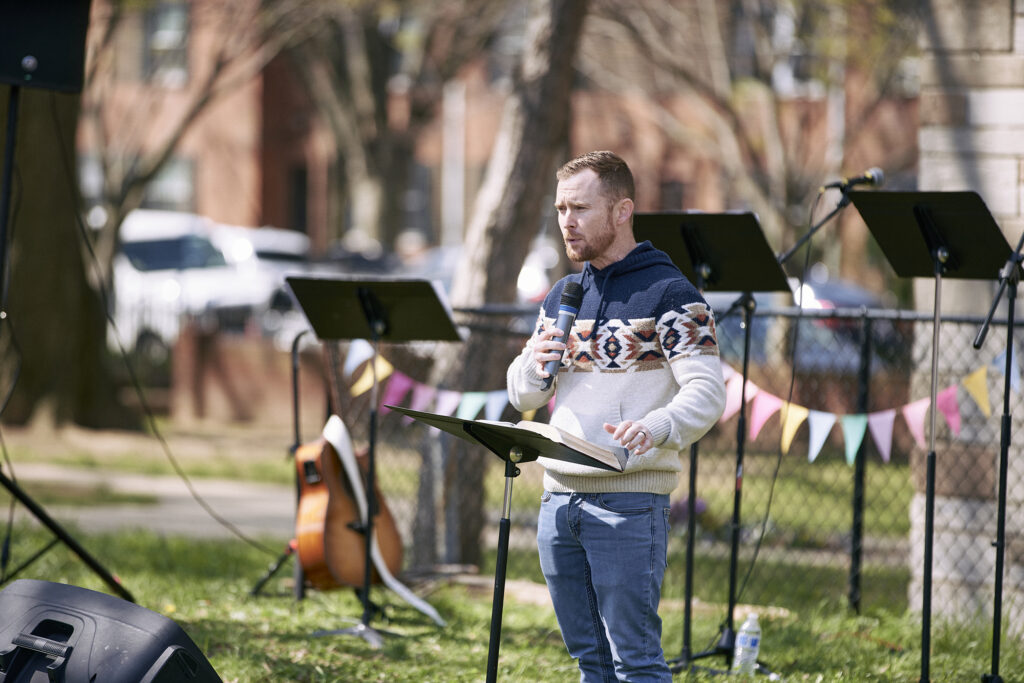
SAN ANTONIO – While serving in the U.S. Army for six years, Jared Huntley developed a passion to minister to those who have sacrificed much in service to their nation, and he’s planted three churches in the last decade, two of which have been in military communities.
Now, Huntley is planting Pillar Church of San Antonio in what’s been dubbed Military City, U.S.A, and he’s become part of Send Network’s drive to reach military communities as a co-director tasked with overseeing the effort.
“There are approximately 80,000 people at Joint Base San Antonio alone and approximately a quarter million veterans in the San Antonio area,” Huntley said. “This was an obvious landing spot for us because it is a fast-growing area with people moving here from all around the nation, including from many unchurched areas.”
Starting new churches in military communities has been an emphasis at the North American Mission Board (NAMB) for several years with NAMB’s Send Network spotlighting the need. Send Network has newly prioritized 30 American military communities, in the U.S. and abroad with a need for more healthy, multiplying churches. They hope to see a multiplying church planted in each of those communities and many others by 2030.
“We believe that impacting military communities serves as one of the most strategic, missional opportunities we could ever engage in,” said Matt Carter, Send Network’s vice president of mobilization. “Not only do military communities have a desperate need for the Gospel, but our armed services present a unique way for new disciples to carry the Gospel as missionaries all over the world. The Great Commission opportunities are limitless.”
Huntley shares Carter’s passion for reaching the world through church planting in military communities.
“We can join in God’s expansion of His kingdom in cities and nations all over the world by discipling service members and their families,” Huntley said. “They become global ambassadors for Christ wherever they U.S. Government sends them.”
Service members and their families move regularly, typically every one to three years as they are reassigned, sent elsewhere for training or deployment. This transience requires a church in a military community to have an effective strategy in place for outreach and discipleship.
“The most important thing is that we’re very intentional about helping people get plugged in right away and discipled so they can bring the Gospel with them wherever their military career takes them next,” Huntley said.
Huntley and his church build relationships by opening their homes and serving meals. They encourage participation in discipleship groups, so congregants learn what it means to be in Christ and to value the local church. Then, through Send Network’s efforts to plant near military communities, service members who come to Christ will be able to discover a like-minded church when they are stationed elsewhere.
One example of this was a young Marine who came to Christ when Huntley was planting and leading Pillar Church in Washington, D.C. Huntley baptized him, and when the Marine was transferred to the other side of the U.S., there was a church in Oceanside, Calif., where he was able to plug in immediately.
“Another key group we try to reach are veterans of our armed services,” Huntley said. “Many in our society have the tendency to overlook the unique needs and challenges our veterans face. Members of a church in a military community understand what veterans have been through and can bring them hope with the understanding that a civilian might not have.”
To learn more about Send Network’s support for churches planting churches in military communities, and to learn how to get involved, visit SendNetwork.com/military.
Karen Willoughby contributed to this article.
















